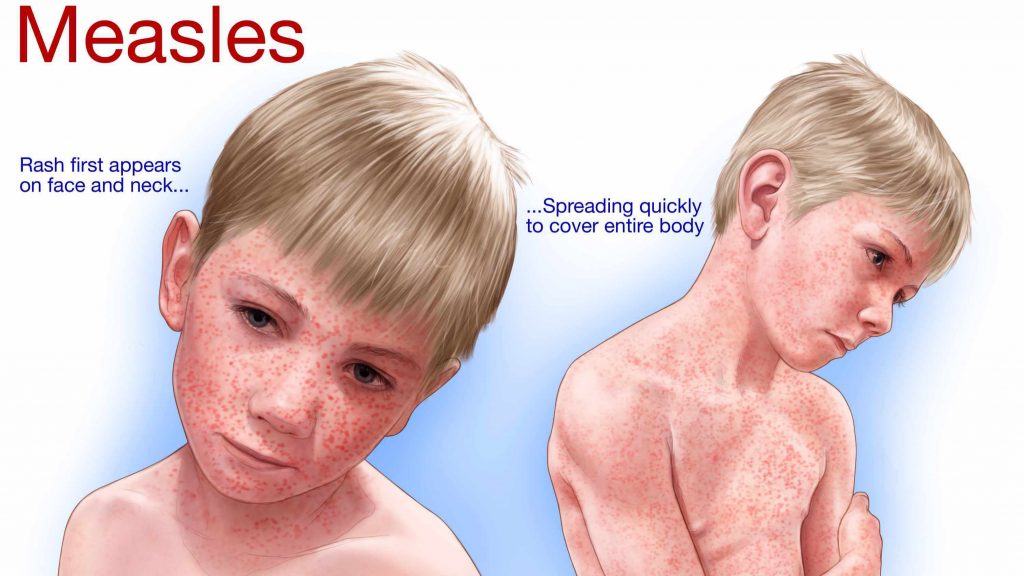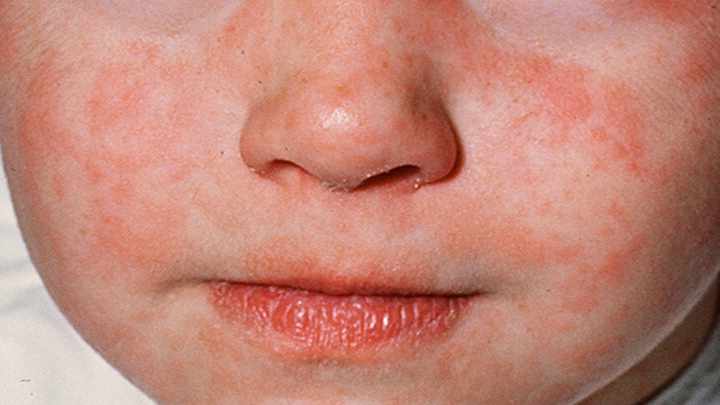-
Health & Wellness

The Centers for Disease Control and Prevention reports more than a dozen outbreaks of measles in the U.S., with more than 165 confirmed cases of the highly contagious viral disease. Most of the cases are among children under age 5, and more than half of all cases have resulted in hospitalization.
“Measles is a viral infection that is highly contagious if you’re not immune to it,” says Dr. Nipunie Rajapakse, a pediatric infectious diseases physician with the Mayo Clinic Children’s Center. “It’s generally characterized by fever, cough, runny nose and a pretty characteristic rash that can involve much of the skin surface.”
Measles was declared eliminated in the U.S. in 2000 through a successful vaccine program, yet it persists globally. People can bring it to the U.S. if they’re not vaccinated and get infected when they travel. The CDC says travelers should seek medical care if they develop symptoms of measles, including a rash, high fever, cough, runny nose or red, watery eyes.
“Measles is one of the most contagious infectious diseases out there. If you’re in the same airspace as someone with measles, if they were there two hours ago and you’re not immune to it, you can still contract measles, even without ever coming in face-to-face contact with that person. That’s why the vaccination is so important. It gives you baseline immunity,” says Dr. Rajapakse.
Watch: Dr. Nipunie Rajapakse talks about measles
Journalists: Broadcast-quality sound bites with Dr. Rajapakse are available in the downloads at the end of the post. Please courtesy: “Mayo Clinic News Network.” Name super/CG: Nipunie Rajapakse, M.D./Pediatric Infectious Diseases/Mayo Clinic.
Complications from measles
“Measles used to be a relatively common childhood illness. Since we’ve introduced very effective immunization, measles is quite rare to see here in the U.S.,” says Dr. Rajapakse. “It can infect the brain, for example, resulting in something called encephalitis. It can cause severe pneumonia. We’re trying to avoid these complications by vaccinating children before they get sick with it.”
Children under the age of 5, adults over 20, pregnant women and those with compromised immune systems are more likely to have complications from infection.
Complications from measles include:
- Diarrhea and vomiting.
- Ear infection.
- Bronchitis, laryngitis or croup.
- Pneumonia.
- Encephalitis.
- Pregnancy problems, including premature or low-birth-weight babies.
The CDC says that out of every 1,000 children with measles, about 1 to 3 die due to breathing and brain problems.

Reducing measles outbreaks
“Measles vaccination is a component of the measles, mumps, rubella (MMR) vaccine that is routinely given between 12 to 18 months of age, and then again in the preschool vaccines between 4 to 6 years of age,” Dr. Rajapakse says.
Two MMR vaccine doses are 97% effective against measles, while one is about 93% effective.
Before the 1963 measles vaccination program, around 3 to 4 million people got measles every year in the U.S., according to the CDC.
Learn more about the history of the measles vaccine development on the Mayo Clinic website.
